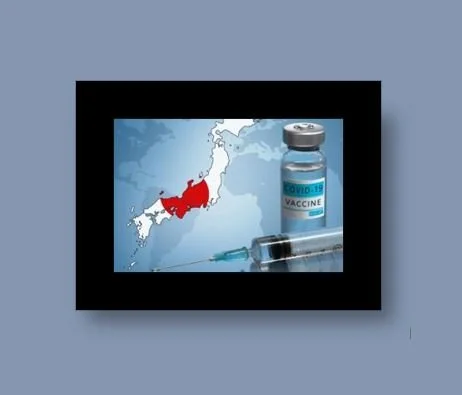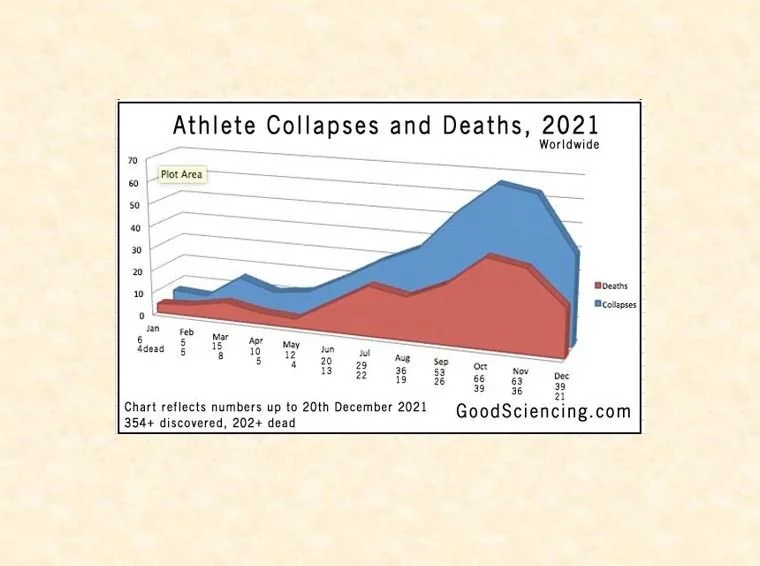Japan Puts Warnings On COVID Jabs and Tokyo's Medical Assoc. Chairman Haruo Ozakin Recommendation To Use Ivermectin
Japan has taken steps to warn its citizens about serious side effects linked to COVID-19 injections.
They've added a warning label to the jabs, warning about the risk of myocarditis — inflammation of the heart muscle
Unlike some other countries Japan is taking measures to monitor and report all side effects to the unprecedented jabs sue to strict legal reporting requirements for side effects that occur within 28 days after receiving Covid jab where hospitals must give detailed report of any adverse effects that happen in that period of time.
Decision was made after Japan’s Ministry of Health reported that, as of November 14, 2021, million males aged between 10 to 19, over 80 who had taken the Moderna jab, reported such cases. And close to 49 males from a million in their 20’s also had such reactions, NHK reported. The figures were 15.66 and 13.32 respectively, for those who had taken the Pfizer vaccine.
https://www3.nhk.or.jp/nhkworld/en/news/20211204_12/ (link have been removed now)
Japan also stands against compulsory vaccination where Japan's Ministry of Health includes a "consent to vaccination" section on its website, which states mandatory vaccination and discrimination against those who choose not to be vaccinated are not advised; this includes at workplaces, which are told not to force anyone to get injected.
https://www.mhlw.go.jp/stf/covid-19/vaccine.html
Japan is standing out as a protector of informed consent and medical freedom, during a time in history when many other countries are opting for totalitarian control.
The government even links to a “Human Rights Advice,” including instructions for handling any complaints if individuals face “vaccine” discrimination at work.
https://www.moj.go.jp/JINKEN/index_soudan.html
Reports of both cerebral venous sinus thrombosis and intracranial hemorrhage (ICH) have been reported following COVID-19 shots, including both fatal and nonfatal cases. In a commentary published in the Journal of Pharmaceutical Policy and Practice, Japanese researchers revealed that, as of May 2021, 10 deaths were reported following the shots — and the manner of deaths raised a red flag.
Among the five men who died, it was from causes other than stroke, but four of the five women who passed away died from ICH. "This imbalance is incompatible with the mortality data on cardiovascular diseases in the National Statistics, which show no apparent disparity between sexes or between hemorrhagic and ischemic stroke," they wrote.
https://joppp.biomedcentral.com/articles/10.1186/s40545-021-00326-7
Below are cases mentioned in the study :
Case 1 was a 61-year-old woman with no significant history. She was found dead at home by her husband 3 days after receiving the first shot of tozinameran, with no episode reported in the intervening time. A spinal tap revealed bloody cerebrospinal fluid. Neither autopsy nor postmortem imaging study was performed.
Case 2 was a 26-year-old woman with no underlying conditions. After the first shot of tozinameran, her subsequent course was unremarkable until she was found dead 4 days later at home. Postmortem imaging revealed
a hematoma 3.5 cm in diameter at the left cerebellopontine angle compressing the brainstem and secondary subarachnoid hemorrhage.
Case 3 was a 72-year-old woman with hepatitis C and dyslipidemia. Three days after the first shot of tozinameran, she developed dysarthria with complaints of headache and nausea. Brain imaging revealed a large hematoma with ventricular rupture. Her platelet count
was 216,000/mm 3. She died 5 days after receiving
tozinameran.
Case 4 was a 69-year-old woman. No underlying condition was specified. She had been well until she was found dead at home 9 days after the first shot of tozinameran. An autopsy revealed that she died of ICH. No other information was available.
Case 5 was a 102-year-old woman with chronic heart failure. Ten days before the first shot, she had developed aspiration pneumonia, which was empirically treated with clarithromycin. She died 4 days after receiving tozinameran. Thrombocytopenia was not reported. The cause of death was considered to be aspiration pneumonia, which was revealed by computed tomography. No
autopsy was performed.
Case 6 was a 65-year-old man with an unremarkable history. He was reported to have been well at 18 days after the first shot. He was found dead at home 3 days later when a policeman, informed of his absence from
the office, visited to ask for him. Postmortem inspection showed blood coagula in the oral cavity. He was presumed to have died of acute heart failure on the grounds that his living conditions suggested alcoholism and heavy
smoking. No autopsy or other postmortem examination was performed.
Case 7 was a 62-year-old man with hypertension, diabetes, and obesity. He was reported to have taken an unspecified anti-thrombotic drug. On the day after the second shot of tozinameran, he was found dead in the bathtub by a housemate. Autopsy of the lungs revealed the cause of death to be drowning without ICH or any other significant pathology.
Case 8 was a 51-year-old man with no underlying conditions. He was found apneic in bed at midnight 14 days after the first shot. He was transferred to a hospital, but resuscitation failed. His housemate was informed that he had died of ventricular fibrillation. No autopsy or other postmortem examination was performed.
Case 9 was a 73-year-old man with chronic renal failure. He had been on hemodialysis for 6 months before the second shot. In the night after the shot, he became febrile with vascular access infections and purulent vertebral osteomyelitis. Thrombocytopenia was not reported. He died of septic shock 8 days later. No autopsy was
performed.
Case 10 was a 37-year-old man. He was reported to have had a history of unspecified arrhythmia, electrocardiographic anomaly, and hay fever. He had been well until he was found dead in bed in the morning 3 days after the second shot. No autopsy or other postmortem examination was performed
Japanese Study Reveals Adverse Events Following Jabs in a preprint study released in October 2021, researchers from Nagasaki International University, Japan, studied adverse events that occur in young Japanese people following Moderna's COVID-19 shot.
Using data from 7,965 individuals, they found that 83% experienced local adverse events while 65% experienced systemic adverse events. Those particularly at risk included women, youth under the age of 20 — who often experienced adverse events after the first dose — and those who experienced adverse events after the first dose.
https://www.medrxiv.org/content/10.1101/2021.10.01.21264393v1.full.pdf
The chairman of the Tokyo Medical Association, Haruo Ozaki, held a press conference in August 2021 announcing that the anti-parasite medicine Ivermectin seems to be effective at stopping COVID-19 and publicly recommending that all doctors in Japan immediately begin using Ivermectin to treat COVID.
“In Africa, if we compare countries distributing ivermectin once a year with countries which do not give ivermectin, I mean, they don’t give ivermectin to prevent COVID, but to prevent parasitic diseases. But anyway, if we look at COVID numbers in countries that give ivermectin, the number of cases is 134.4 per 100,000 and the number of death is 2.2 per 100,000.
Now African countries which do not distribute Ivermectin: 950.6 cases per 100,000 and 29.3 deaths per 100,000.
I believe the difference is clear.
Of course, one cannot conclude that ivermectin is effective only on the basis of these figures, but when we have all these elements, we cannot say that ivermectin is absolutely not effective, at least not me.
We can do other studies to confirm its efficacy, but we are in a crisis situation. With regard to the use of ivermectin, it is obviously necessary to obtain the informed consent of the patients, and I think we’re in a situation where we can afford to give them this treatment.” – Dr. Haruo Ozaki
Video:








